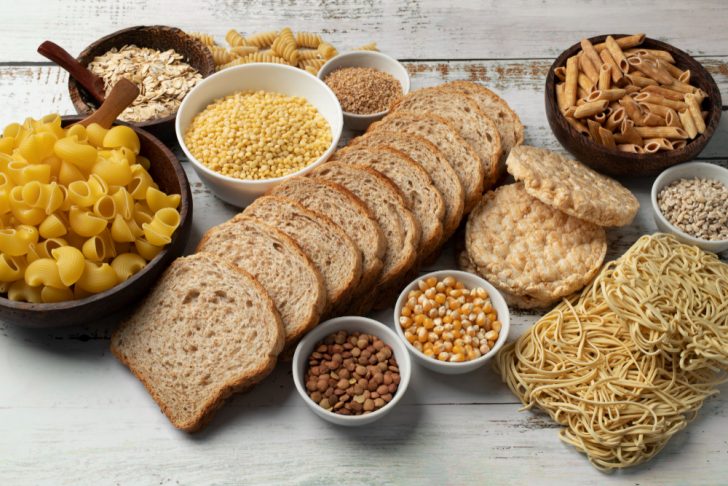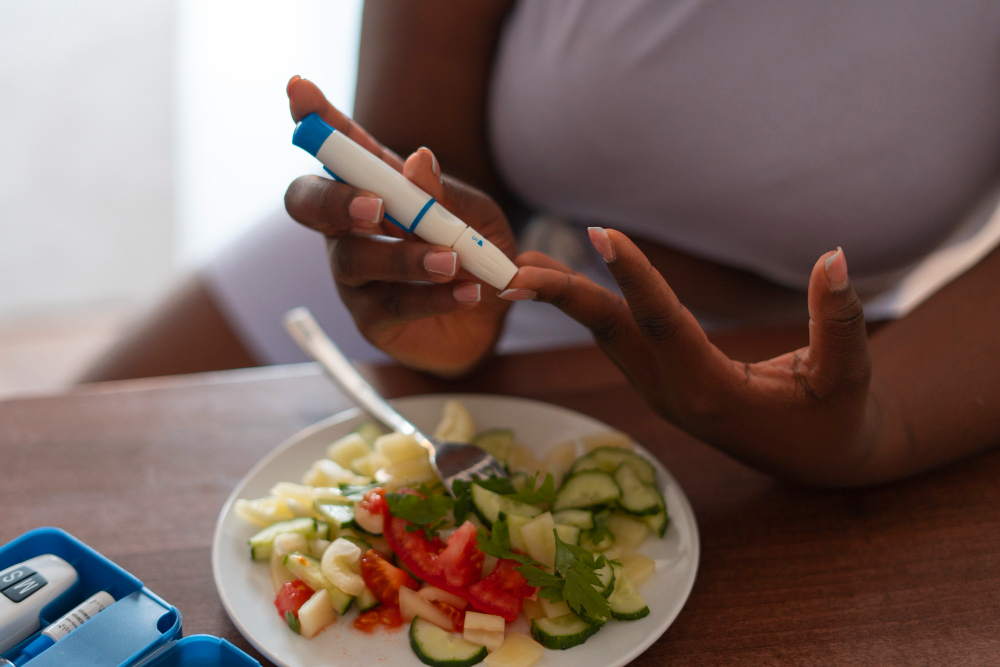Prediabetes often serves as a wake-up call, signaling that it's time to take serious steps toward managing your health. Adjusting your diet is a pivotal strategy to reverse or control prediabetes and prevent it from escalating into type 2 diabetes. Here are effective diet tips to help you transform your health with a prediabetic diet.
What Is Prediabetic?
Prediabetes is characterized by blood sugar levels that are higher than normal but not high enough yet to qualify as diabetes. This condition usually stems from insulin resistance, where the body struggles to use insulin effectively. Those with prediabetes are at a higher risk for developing type 2 diabetes and cardiovascular diseases. Fortunately, lifestyle changes, particularly in diet, can play a massive role in managing and potentially reversing this condition.

Artem Podrez | Pexels | Prediabetes is characterized by blood sugar levels that are higher than normal but not high enough yet to qualify as diabetes.
7 Effective Prediabetic Diet Tips
1. Focus on Fiber-Rich Foods
Incorporating more fiber into your meals is beneficial for blood sugar control. Foods high in fiber, such as beans, legumes, fruits with edible skins, whole grains, and vegetables, help slow down sugar absorption, thus preventing sudden spikes in blood sugar levels. Besides, fiber aids in digestion and can help you feel full longer, which is crucial for weight management.
2. Be Mindful of Carbohydrates
Understanding and managing your carbohydrate intake is critical in a pre-diabetic diet. Opt for foods with a low glycemic index (GI), which have a less significant impact on blood sugar levels. Examples of low-GI foods include steel-cut oats, stone-ground whole wheat bread, and non-starchy vegetables. Be cautious with portion sizes—eating too much of even low-GI foods can lead to increased blood sugar levels.

Freepik | Opt for foods with a low glycemic index, which has a less significant impact on blood sugar levels.
3. Control Portion Sizes
It's not just what you eat but how much you eat that matters. Large portions can lead to higher blood sugar levels, regardless of the food's GI. Utilize food labels to understand serving sizes and be mindful of how much you're consuming, especially with carbohydrate-rich foods.
4. Opt for Lean Proteins
Proteins are essential for a balanced diet and do not directly raise blood sugar levels like carbohydrates do. However, choosing the right type of protein is crucial. Prefer lean sources of protein such as chicken, turkey, fish and plant-based options like beans and legumes. These foods are lower in unhealthy fats and beneficial for both blood sugar and heart health.
5. Moderate Your Alcohol Intake
Drinking alcohol in moderation is vital in managing prediabetes. Alcohol can lead to dehydration and may cause blood sugar fluctuations. Stick to the guidelines of one drink per day for women and two for men, and choose simpler alcoholic beverages without added sugars.
6. Combine Diet with Exercise
Diet and exercise are essential when managing prediabetes. Regular physical activity helps improve insulin sensitivity and glucose utilization in the body, making it a crucial component of this management. Aim for the recommended 150 to 300 minutes of moderate-intensity aerobic activity per week.
7. Prioritize Hydration
Staying hydrated is essential, especially when managing blood sugar levels. Water is the best choice, as it doesn't contain the sugars and calories found in sodas, juices, or energy drinks. Monitoring your hydration status by checking the color of your urine can be an effective way to ensure you're drinking enough throughout the day.
Implementing these diet tips can help you make significant strides in managing your prediabetes and improving your overall health. Every small step can lead to substantial health benefits.












